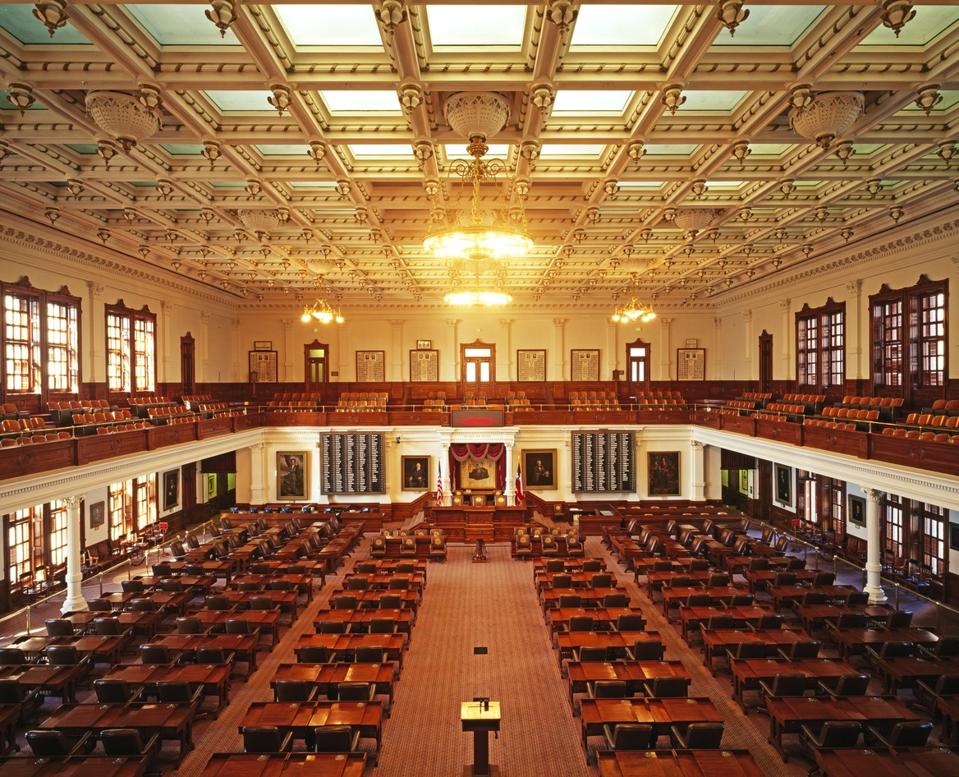2025 is poised to be a very consequential year for Texas public policy. Several major reforms favored by Governor Greg Abbott (R) that did not pass in prior sessions appear destined to reach his desk this session, including bills making education savings accounts available to all families, further reining in property taxes, and tightly restricting taxpayer-funded lobbying.
The new Speaker of the Texas House, Dustin Burrows (R-Lubbock), and the leader of the Texas Senate, Lt. Governor Dan Patrick (R), along with the Governor, have details to work out on all these issues. Still, the three seem to be working in the same policy direction.
Another, less covered matter on which Governor Abbott, Lt. Governor Dan Patrick (R), and Speaker Burrows agree is occupational licensing reform. In particular, there is agreement among legislative leadership in both chambers that occupational licensing requirements should be reformed in a way that will make them a less costly and burdensome impediment to working in Texas.
In particular, legislative leaders in Texas are interested in reforms that will make it easier for licensed professionals whose services are in demand to get to work more easily and quickly in Texas, one of the nation’s fastest growing states. In fact, a bill that would help rectify the shortage of dental care providers in Texas will be considered by members of the Texas House Public Health Committee during a hearing on Monday, March 31. That legislation, House Bill 1803, would make Texas the newest member of the Dentist and Dental Hygienist Compact (DDHC).
Enactment of HB 1803 would increase the supply of oral health care providers able to treat Texans by allowing dentists and dental hygienists who are licensed in other DDHC member states to offer their services in Texas, which is currently underserved when it comes to the supply of oral health care. The Kaiser Family Health Foundation reports that less than 29% of Texas’s oral health care needs are met by the existing in-state supply of dental care providers. Kaiser has identified 261 certified dental health shortage areas across the state that are home to more than two million Texans.
Aside from the documented need to increase the supply of oral health care providers who are available to treat Texans, there is another reason why HB 1803 and its companion in the Texas Senate, SB 1109, are likely to gain traction. Among the top policy priorities this year for Governor Abbott, Lt. Governor Patrick, and Speaker Burrows, occupational licensing reform of the sort found in HB 1803/SB 1109 is most likely to garner bipartisan support. In fact, the Texas House approved legislation to join the DDHC last session in 2023 with near unanimous support (only one dissenting vote).
Beyond the wide, bipartisan vote by which the Texas House has already voted to join the DDHC, the politically diverse roster of DDHC member states — which are blue, red, and purple — underscores the compact’s broad appeal. Aside from Arkansas, current DDHC members include Tennessee, Virginia, Ohio, Michigan, Maine, Wisconsin, Minnesota, Iowa, Nebraska, Colorado, and Washington. With legislation for additional states to join the DDHC now pending in, aside from Texas and Arizona, Missouri, Nevada, Oregon, Pennsylvania, New Jersey, Vermont, New Hampshire, and Massachusetts, the list is poised to grow in 2025.
Though the DDHC is one of the newer interstate compacts for licensed professions, it is one of the fastest growing. Arkansas became the most recent state to join the DDHC with legislation enacted this month by Governor Sarah Sanders and state legislators in Little Rock. Legislation to join the DDHC is now under consideration in Arizona. Whether Texas or Arizona is the next state to join the DDHC, many other states are expected to follow suit in the coming months and years.

